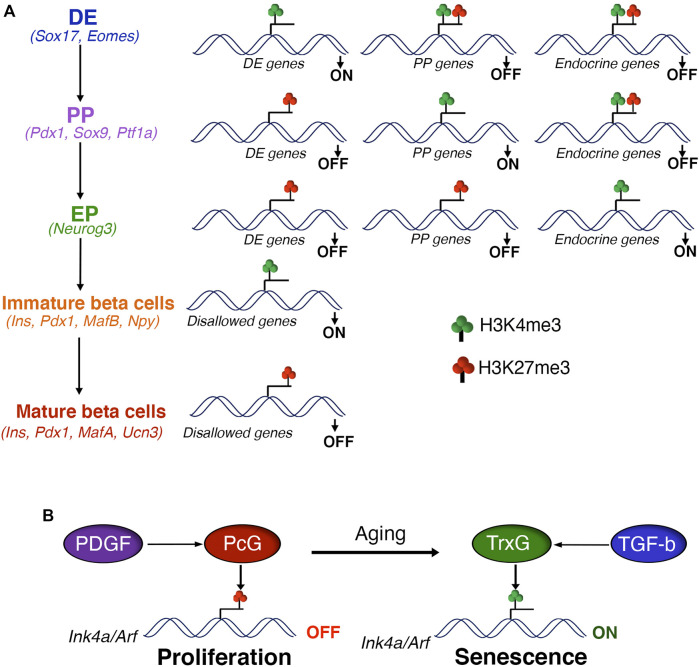FIGURE 1.
Polycomb control of beta cell differentiation and expansion (A) Polycomb proteins regulate the differentiation of pancreatic beta cells via sequential H3K27me3 patterning of stage-specific transcriptional programs. Polycomb eviction and consequent removal of H3K27me3 in response to developmental signals is essential for the activation of stage-specific transcription factors during definitive endoderm (DE) specification, marked by the presence of H3K4me3. The transition to pancreatic progenitors (PP) is coupled with the PcG dependent repression of DE genes, marked by gain of H3K27me3 and loss of H3K4me3. DE induction is also hallmarked by the creation of transcriptionally-poised chromatin state at gene promoters of pancreas specification, characterized by the presence of both H3K27me3 and H3K4me3. This regulatory process is reiterated during the subsequent stages of beta cell differentiation, such as PP to endocrine progenitors (EP) and EP to beta cells. Finally, PcG mediated repression of disallowed genes supports the functional maturation of beta cells. Key gene signatures of each developmental stage are noted in parentheses. (B) PcG mediated repression of the Ink4a/Arf locus is critical for the postnatal beta cell expansion and adaptive response. Age dependent down-regulation of PcG proteins combined with increased TrxG occupancy leads to induction of Ink4a/Arf expression and beta cell senescence. Age related changes in the actvitity of growth factor signaling pathways, namely PDGF and TGF-beta, play a key role in the PcG dependent control of beta cell homeostasis.

